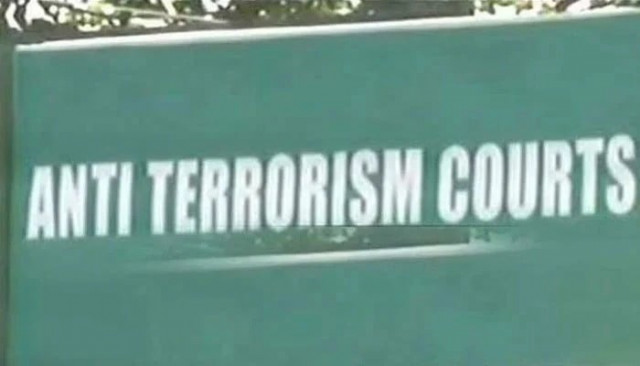LAHORE:
Anti-Terrorism Court Judge Manzer Ali Gill has observed that the May 9 violence did not qualify as a peaceful protest by any global standard, noting that coordinated attacks were simultaneously carried out across different cities, specifically targeting state buildings, military installations and monuments associated with the armed forces.
Issuing the detailed judgment in the Rahat Bakery case, Judge Gill said evidence showed that party leaders had been involved in hatching a conspiracy in connection with the attacks that followed the arrest of PTI’s founding chairman Imran Khan.
It is pertinent to note that PTI leaders Omer Sarfraz Cheema, Ijaz Chaudhry, Mian Mehmood-ur-Rasheed, Dr Yasmin Rashid and others had been each handed 10-year jail sentences in the case.
The court held that protesting itself was not a crime, but once violence was introduced, it changed the character of a protest.
Judge Gill noted that while citizens around the world protest peacefully, holding placards without taking the law into their own hands, in Pakistan, official buildings and police and military installations across the country came under attack.
He added that in today’s digital age, no incident can be concealed for long and “several clips, snaps and other material are still available at Facebook, YouTube, Twitter, X and TikTok till today. Just by clicking the link, everybody could visualise each and every incident of the tragic moments.”
Defence questions prosecution evidence
During the trial, the defence counsel for the convicted PTI leaders raised more than 100 challenges to the prosecution’s evidence, arguing that it failed to withstand scrutiny.
They noted that none of the accused was named in the initial FIR; there were no descriptions of their identities, no allegations of instigation or provocation, no explanation for the delay in lodging the FIR and glaring inconsistencies in timelines and witness testimony.
Counsel further argued that the prosecution had failed to establish burning of vehicles or property, had withheld CCTV footage and call data records, and had produced digital material, including CDs and USBs, without authentication or playback in court as required under Supreme Court standards, rendering it inadmissible.
They also claimed the conviction amounted to double jeopardy, as it relied on the same evidence and testimony used in other cases.
‘Conspiracy witnesses’ cross-examined
Two prosecution witnesses who claimed to have overheard the alleged conspiracy – Head Constable Muhammad Khalid and Sub-Inspector Hassam Afzal – were subjected to extensive cross-examination.
Khalid conceded that his assignment to monitor PTI leaders at Zaman Park was given orally; that no FIR was registered regarding the alleged conspiracy meetings; that he kept no record of his arrivals or departures; possessed no audio or video evidence; and never returned to the supposed meeting venue with the investigating officer for corroboration.
Likewise, SI Hassam Afzal testified that his duty was issued verbally, that his phone was neither seized nor examined, that he did not carry a mobile during visits to Zaman Park, and that he was unfamiliar with the adjoining residents around Imran Khan’s residence.
He further acknowledged that he had neither recorded any footage nor invited others to observe the meetings.

